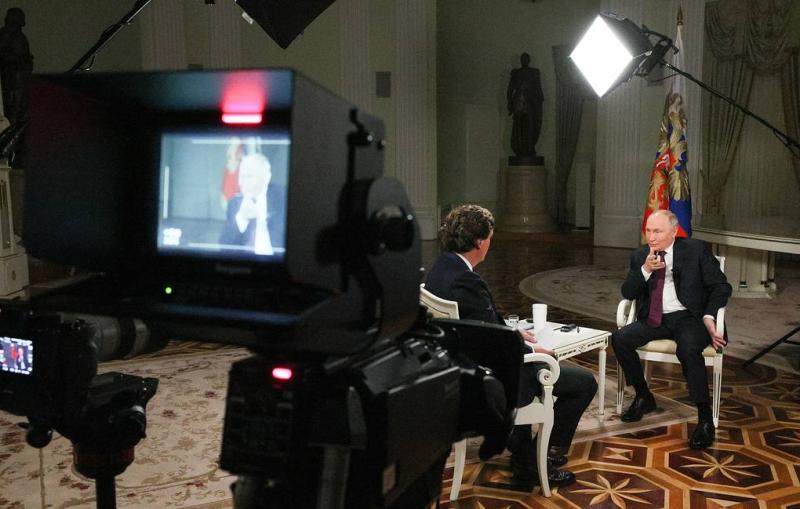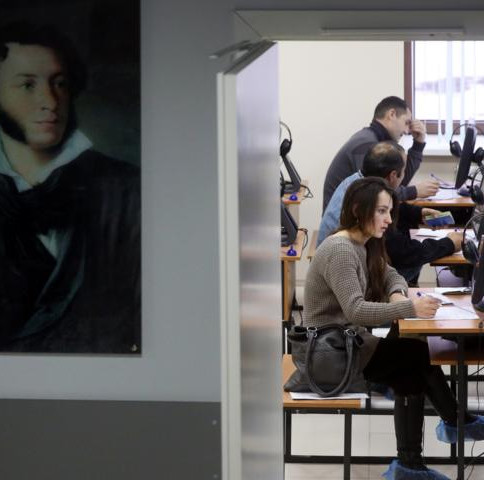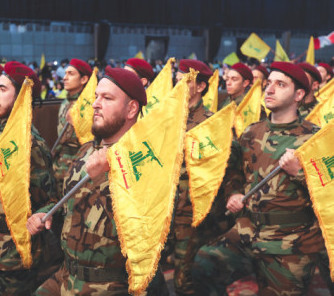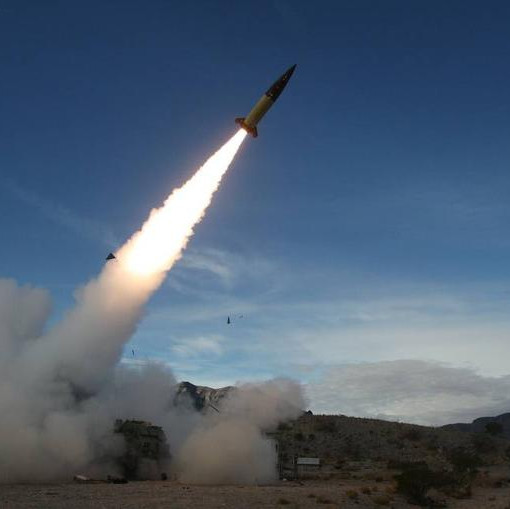
Experts weigh in on the message and target audience of Russian President Vladimir Putin’s interview with Tucker Carlson; Finland’s former Prime Minister and new President-elect Alexander Stubb will toe NATO’s anti-Russian line; and Ukraine is gearing up to deploy marine and airborne assault forces under Kiev’s new military chief. These stories topped Monday’s newspaper headlines across Russi, according to TASS News Agency.
Vedomosti: Buzz continues over Putin interview as experts debate message, target audience
At a press briefing on February 9, US National Security Council Strategic Communications Coordinator John Kirby urged Americans not to put any stock in the interview that Russian President Vladimir Putin gave to noted conservative US journalist Tucker Carlson last week, as the White House official dismissed concerns that the Russian president’s remarks to Carlson would have any effect on public support for funding Ukraine.
Carlson released the video and translated transcript of his two-hour-long Kremlin interview with Putin in the early morning hours of Friday, February 9. By Saturday evening, February 10, the video had been viewed more than 173.2 mln times on X (formerly Twitter), and by Sunday, February 11, the interview hit over 13.1 mln views on YouTube. The media buzz surrounding the sit-down came amid Carlson’s claim, made when announcing the interview, that not a single Western journalist had interviewed Putin over the two years of Russia’s special military operation in Ukraine. Experts interviewed by Vedomosti said that the interview has, in part, played a certain role ahead of Russia’s presidential election in March, giving Putin a platform to outline his foreign policy vision and goals.
As for its intended foreign audience, on the whole, one could argue that the interview was targeted at Republican-leaning voters in the US as well as the inside-the-Beltway political establishment itself, said political analyst Yevgeny Minchenko. US studies specialist Yan Veselov agrees that the target audience was the conservative half of the US electorate.
Konstantin Kostin, head of the Civil Society Development Foundation, said: "The key message for the West is [that they should be] open to negotiations that would fully take into account Russia’s [security] interests, which have repeatedly been articulated before." Political scientist Alexander Asafov said that, "the Russian vision of events, backed up by the relevant historical record, will be something new for many Western countries." "One of the first to come out in support of Tucker was not even Elon Musk, but none other than radio host Alex Jones, a prominent conspiracy theorist who has been effectively 'deplatformed' from all major US media, which points to the broad demand [for the type of unfiltered information provided by the interview] across diverse audiences," he said.
To Andrey Kortunov, research director at the Russian International Affairs Council (RIAC), interviewing Putin means success for a journalist. "In this light, Carlson has given his personal brand quite a boost," the expert said. However, Kortunov doubts that the interview itself could have any radical effect on US elite thinking or on the public discourse on foreign policy within US society.
Izvestia: Finland’s President-elect Stubb to toe NATO’s anti-Russian line
On Sunday, former Finnish Prime Minister (2014-2015) Alexander Stubb won the presidential runoff election in Finland. The leader of the National Coalition Party scored 51.6% of the vote, while his rival, former Finnish Foreign Minister Pekka Haavisto, came in second at 48.4%. The new head of state, elected to a six-year term, is expected to be inaugurated on March 1.
During his presidential campaign, Stubb applauded the deployment of NATO troops in Finland. He also favors expanding military aid to Ukraine and helping Kiev to integrate into both the EU and NATO, at times openly asserting that Russia has already been defeated in the Ukraine conflict. Stubb confirms that Finland stands among the US’ top ten partners and asserts that no talks should be held with Russia amid the ongoing hostilities.
No matter who won the Finnish presidential election, Helsinki is certain to continue pursuing its ardently anti-Russia and pro-NATO course in the foreseeable future, Nikita Lipunov, analyst at the Institute for International Studies at Moscow State Institute of International Relations (MGIMO University), believes. "Finland currently views any communication with Russia as a potential threat, and therefore it will maintain restrictions on Russian citizens and their property. While [Helsinki] will hardly strip [naturalized Russians] of their [Finnish] citizenship as that would be in violation of the Constitution, we may well see additional discriminatory measures," the expert forecasts.
Also, in the final election debate, Stubb announced his intention to introduce amendments to the law on nuclear energy that would allow "the transport of nuclear weapons across Finnish soil in the event of a contingency." This, he insisted, would send a signal to the Russian leadership. According to Lipunov, "In the longer term, Stubb’s position may mean deploying nukes in Finland 'in the event of a contingency,' but this is currently unlikely as neither the United States nor NATO is ready for such an escalation."
Experts argue that Finland has been steering away for some time from its longstanding neutral status amid its rapprochement with Western countries and the North Atlantic Alliance. Many decisions by the Finnish leadership on the Nordic country’s foreign policy, and often even domestic policy, are made under heavy US influence, Finnish political analyst Johan Backman said. As regards the prospects for improving Helsinki’s bilateral relations with Moscow, experts doubt that such a thaw could occur under the current government. Close diplomatic ties are lacking between the two countries, Backman concluded, emphasizing that reviving them would require a change of regime.
Nezavisimaya Gazeta: Ukraine may use marine, airborne assault forces under new army chief
The reshuffle in the Ukrainian military leadership continues apace with the appointment of two young colonels, who will oversee innovation and the massive use of drones on the battlefield, as deputies to newly appointed Ukrainian Armed Forces Commander-in-Chief Alexander Syrsky.
The fresh military appointments indicate that Kiev is trying to put into practice the ideas it shared with the Pentagon and NATO earlier about Ukraine’s need for a technological breakthrough in weaponry. Last month, the Western media had been hinting that Syrsky, formerly Ukraine’s ground forces commander, or Kirill Budanov, head of the Ukrainian Defense Ministry’s Main Intelligence Directorate (GUR), would be tapped to replace Valery Zaluzhny as Ukraine’s new military chief, as leading media outlets interviewed both military leaders in a move that may have been greenlighted by Ukrainian President Vladimir Zelensky and his Western patrons.
In an interview with Reuters on January 12, Syrsky said that the Ukrainian armed forces needed more military aircraft, apart from F-16 fighter jets that can carry cruise missiles, including say, A-10 Thunderbolt warplanes. Attack helicopters, including AH-64 Apache and AH-1 Super Cobra, as well as UH-60 Black Hawks, may also play a major role, Syrsky insisted, saying that a breakthrough on the front was still possible.
"Syrsky is asking the West to supply weapons necessary for landing tactical airborne assault teams in the enemy’s rear," military analyst Colonel (Ret.) Nikolay Shulgin told Nezavisimaya Gazeta. "As the Ukrainian commander-in-chief, he will soon ask for marine drones, which he believes may be effectively used against Russian warships in the Black Sea," the expert added. According to him, Ecuador is preparing to send six Mi-17 helicopters to Kiev with US mediation and Germany may supply as many Westland Sea King Mk 41 multi-purpose helicopters, too.
Russia realizes what it should expect from Ukrainian forces in the near future, as Russian Defense Minister Sergey Shoigu inspected the implementation of a state defense order for the production of reconnaissance and attack drones on January 10, military analyst Lieutenant General (Ret.) Yury Netkachev said. He said the latest military reshuffle in Ukraine "should be treated as seriously as possible" as he expects territorial defense units to be included into the main composition of Ukrainian forces to make up for the lack of personnel. "Therefore, the General Staff of the Armed Forces of Ukraine will now call up troops both among servicemen and civilians," the general believes.
Izvestia: Russia overtakes Saudi Arabia to hold world’s 6th largest foreign reserves
Russia has become the world’s sixth largest holder of foreign currency and precious metal reserves, outpacing Saudi Arabia, with $442 bln in total holdings, according to the World Gold Council. While the Saudis have cut central bank holdings, Russia has been replenishing its foreign reserves with Chinese yuan, the share of which exceeds Russian imports by eight times, reflecting financial stability. Also, $300 bln worth of Russian assets are now frozen, which the West is mulling confiscating to aid Ukraine.
Russia can now replenish its foreign reserves with yuans, Anatoly Trifonov, an analyst at BCS Forex, told Izvestia, as he said that Russia no longer uses the dollar or the euro for that purpose.
Among other things, Russia has managed to outpace Saudi Arabia after the desert kingdom decided to invest more reserves in sovereign wealth funds, Anna Tanasova from the Institute for Energy and Finance Foundation told Izvestia. Saudi foreign reserves have dropped to the lowest level since 2009, Anton Polyakov estimates. In addition, Riyadh is manipulating oil production volumes as it cuts production to keep up oil prices, the expert added.
Russia will improve its position in the ranking if commodity prices rise, which would bring more oil and gas revenues and cause the government to buy more currency under its budget rule, Trifonov continues "However, we forecast that, this year, the Central Bank and the Finance Ministry will prioritize selling foreign currency over FX purchases, so Russia’s foreign reserves will shrink," he said. Meanwhile, the accumulation of foreign reserves should not be an end in itself, while the country’s position in the ranking says little about either its economy or the well-being of its citizens, the expert argues.
Vedomosti: US-based Rapaport warns of threat to diamond market amid anti-Russian sanctions
US diamond corporation Rapaport, the owner of the largest US online marketplace for sourcing and selling diamonds, RapNet, criticized the approach of the G7 countries to certifying and tracking uncut and polished diamonds as part of the group’s sanctions on Russia in a letter sent to over 7,000 market players worldwide, seen by Vedomosti.
Rapaport views the requirements developed by the G7 as excessive as it argues that they create risks for the US diamond market. The corporation has proposed an alternative idea, the Rapaport US Diamond Protocol, that envisages signing a declaration between diamond importers and exporters that would certify that diamond supplies do not originate from Russia. In its letter, Rapaport announced plans to launch a political campaign and submit relevant proposals to the US government in the week of February 12.
Boris Krasnozhenov, chief securities market analyst at Alfa-Bank, explains that, under the G7 proposal, all diamonds should be sent for certification to Belgium before returning the gemstones to the producer after having their non-Russian origin confirmed. This method will significantly slow down trading and push diamond prices higher, the expert warns, without elaborating.
Kseniya Kostina, managing director at Viree Diamond Club Dubai, says that Rapaport does not oppose anti-Russian sanctions per se, even though restrictions on rough and polished diamond supplies harm not only Russian diamond giant Alrosa, but also other suppliers, including Indian, African and American producers.
TASS is not responsible for the material quoted in these press reviews









